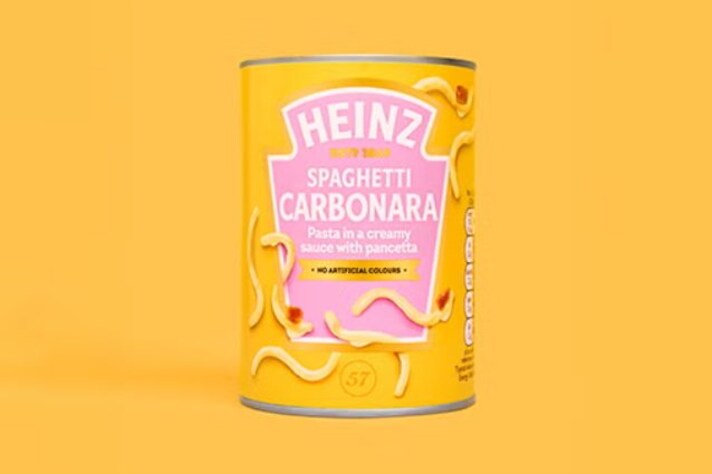Heinz’s Canned Carbonara Sparked General Outrage in Italy (and Beyond)
Heinz's launch of canned Spaghetti Carbonara sparked outrage in Italy, where the dish is a cherished culinary tradition. Italians, including Michelin-starred chef Giorgio Locatelli, criticized the product as a "travesty" and "disrespect" to Italian cuisine.

In August 2024, Heinz, the American food giant best known for its ketchup and baked beans, found itself in hot water after launching a new product: canned Spaghetti Carbonara. While the company might have expected the convenience of a ready-to-eat version of the beloved Italian dish to appeal to busy consumers, what it didn’t anticipate was the fierce backlash from Italy itself—a country where food is both a cultural cornerstone and a matter of national pride.
The controversy kicked off when Heinz announced the release of its canned Carbonara, marketing it as an easy and quick alternative to the traditional dish. However, the product was quickly met with outrage from Italians who were not amused by this reinterpretation of a classic recipe. In Italy, Carbonara is not just a dish; it's a culinary tradition steeped in history and authenticity. The idea of putting it in a can struck many as a culinary crime.
Giorgio Locatelli, a Michelin-starred chef known for his commitment to authentic Italian cuisine, didn’t mince words when he told The Guardian: "This is not Carbonara. It’s a travesty." For Locatelli and many other Italians, the ingredients and method used in Heinz's version don’t align with the traditional recipe, which calls for eggs, guanciale (cured pork cheek), Pecorino Romano cheese, and black pepper—no cream, and certainly no shortcuts.
The backlash in Italy was swift and fierce, with many Italians taking to social media to express their dismay. The popular Italian newspaper La Repubblica described the product as “a canned catastrophe,” while others went as far as calling it an “affront to Italian cuisine.” Many Italians feel that Heinz’s canned Carbonara not only dilutes the cultural significance of the dish but also perpetuates stereotypes about Italian food being easy to replicate or commercialize.

The Italian Confederation of Farmers (CIA) also weighed in, criticizing the product for what they called its “disrespect for Italian gastronomic traditions.” They argued that mass-produced, canned versions of classic dishes contribute to the degradation of Italy’s culinary heritage, something they’ve long fought to protect. The CIA’s spokesperson lamented, "This is yet another example of how Italian cuisine is being commodified and stripped of its essence."
In response to the backlash, Heinz issued a statement defending their new product. They emphasized that their intention was never to replace the traditional Carbonara but to offer a convenient option for those who might not have the time or skills to prepare the dish from scratch. A spokesperson for Heinz explained, “We understand that food is deeply personal and cultural. Our goal was to make a beloved dish more accessible to people around the world, not to disrespect its origins.”
Interestingly, despite the uproar in Italy, the canned Carbonara has been met with mixed reactions elsewhere. Some consumers appreciate the convenience, especially in countries where authentic Carbonara ingredients are hard to come by. In the UK and parts of North America, where ready-made meals are a staple of busy households, the product has garnered a fair share of curiosity and even some positive reviews. However, this hasn’t done much to quell the storm of criticism coming from Italy.
While some argue that food traditions should be preserved in their authentic form, others believe that innovation and adaptation are natural parts of culinary history. After all, many classic dishes we enjoy today have evolved over time and across borders. However, Italian food purists, like Locatelli, argue that certain dishes, especially those with deep historical and cultural significance, should remain untouched by commercialization. They fear that products like Heinz’s canned Carbonara could lead to a loss of appreciation for the authentic versions of these dishes, ultimately eroding the culinary heritage that makes Italian cuisine so revered worldwide.
Therefore, for now, Heinz’s canned Carbonara might find a place in some pantries around the world, but in Italy, it’s likely to remain a symbol of what not to do when it comes to honoring a nation’s food heritage. As the old saying goes, “When in Rome, do as the Romans do”—and when it comes to Carbonara, that means no shortcuts, no cans, and certainly no cream.
;Resize,width=767;)



